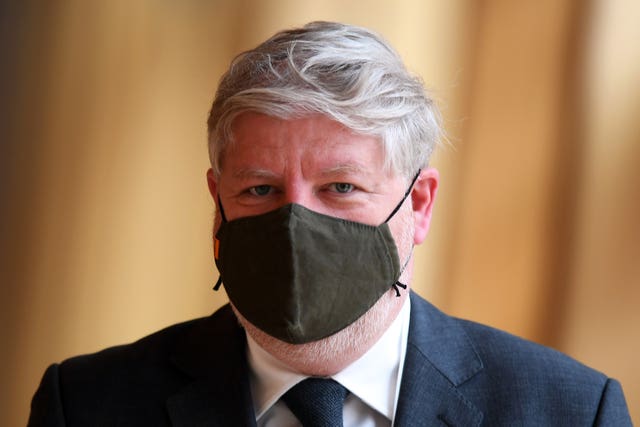Scotland’s Culture Secretary has hit out at the UK Government for what he described as a “ideologically-driven” attack on the BBC.
UK Culture Secretary Nadine Dorries said on Sunday that the announcement of the freezing of the licence fee at £159 for two years “would be the last” – indicating there could be a different funding model put in place for the corporation after that.
Her announcement drew the ire of opposition politicians and staff at the BBC, with Labour’s shadow culture secretary Lucy Powell describing it as “cultural vandalism” and presenters Richard Bacon and Dan Walker decrying the comments.
The BBC wanted the fee to rise to over £180 by the end of the settlement.
Instead, it will remain fixed at £159 until 1 April 2024.
That’s more money in the pockets of pensioners; in the pockets of families who are struggling to make ends meet. pic.twitter.com/T1uXTirrt1
— Nadine Dorries (@NadineDorries) January 17, 2022
Scottish Government minister Angus Robertson has now also taken aim at Ms Dorries, calling on Holyrood’s Constitution, Europe, External Affairs and Culture Committee to lobby the UK Government over the issue.
Mr Robertson also raised fears over the future of Channel 4 after reports emerged last year that the UK Government would privatise the station.
“We need to be concerned about threats to the BBC and Channel 4 at the present time,” he told the committee on Thursday.
“The UK Culture Secretary – my opposite number if you want to call her that – Nadine Dorries announce this week, gleefully, the freezing of the BBC licence fee with an implicit threat that it may be cut entirely.
“Regardless of the criticism that I, you or anybody else may have about aspects of the BBC – and I do – they are a very important part of the commissioning ecosystem for film and TV and I wouldn’t wish to see that diminished, and the same goes for Channel 4.
“There’s a potential for regressive steps if the UK Government’s ideologically-driven attacks on the BBC and Channel 4 continue.

Mr Robertson’s comments came as the Scottish Liberal Democrats filed a motion in Holyrood in support of the corporation.
Leader Alex Cole-Hamilton described scrapping the licence fee as a “cynical and desperate tactic” that would send the BBC into “a managed decline”.
He added: “The BBC plays an important role as an educator as well as producing enlightening and challenging drama.
“It is now, and has been for the best part of a century, renowned the world over both for the scope and quality of its journalism.
“Undermining the BBC now, at a time when fact-based journalism is increasingly under threat, would be beyond foolish. We must not allow it to happen.”






